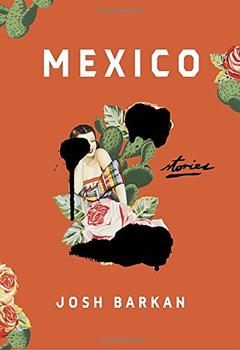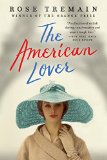Summary | Excerpt | Reviews | Beyond the book | Read-Alikes | Genres & Themes | Author Bio

Stories
by Ryan O'NeillWe read for many reasons. Through stories we are able to travel to distant and unfamiliar places. We meet new characters and are able to step inside them for a bit, allowing us to see the world through someone else's eyes. We can imagine ourselves doing something we've never even dreamt of trying. Stories open our minds and make us think, but they also touch our hearts. We make connections and revelations. We see ourselves in others. Whether by a place, a cast of characters, or an unfamiliar situation, we often also read to be surprised.
If you read for any of these reasons, you will enjoy The Weight of a Human Heart. This varied – and at times experimental – collection of short stories by author Ryan O'Neill travels the wide world and brings readers inside the lives of many different characters.
I think short stories are most effective when they are actually short. Rather than trying to take on the breadth and scope of a novel, a short story explores a moment. Like a magnifying glass, a short story zooms in close and provides clarity and understanding through specific details of a particular experience. Ideally, the story hints at a bigger world and larger life, but all that matters is the now. Each of the stories in this collection can easily be read in one sitting and yet manages to carry an emotional weight that carries on beyond a few pages.
They take place in Australia, Africa, Europe and Asia, as well as in fictional or unnamed locations. Male and female narrators of all ages reveal struggles with loss and love and the general complications of life. The stories delve into relationships – between spouses or lovers, children and their parents, students and teachers, outsiders and members of a community. One story even reveals an escalating duel between an author and a literary critic.
Having volunteered as an English teacher in Rwanda, it is clear that O'Neill is haunted by the Rwandan genocide of 1994 when an estimated 500,000 to 800,000 Tutsi people were slaughtered over less than one hundred days. In "The Cockroach," a young Tutsi girl flees the coming soldiers, while a husband in "The Genocide" covertly reads books in an attempt to understand exactly what his Rwandan wife endured during those horrendous days, when "Even the Nazis had not been so efficient." With heartbreaking attention to details, lines like "When she laughed he could see the spaces where three of her teeth had been kicked out," make it clear that what is not said between the characters is as important as what is.
In addition to the wide scope of characters, settings and content, O'Neill also experiments with form. In "Tyypographyy," a young girl uses her dead mother's typewriter—despite the broken y key that types yy—to feel closer to her. After a flurry of emotion and expression through different fonts, bold type, and italics, she discovers a secret she'd rather not know about her mother. Her devastation is shown through the type choices made. Later, after she has been punished for her reaction, she hears the "bold, but also the italics" in her father's voice. This unusual perspective and description makes perfect—and poignant—sense within the context of the story.
Some stories feel playful and self-aware. "A Short Story" analyzes itself while talking directly to the reader, complete with a hilarious double meaning for the climax of the story. "Figures in a Marriage" tells the story of a marriage purely through timelines, graphs, charts, diagrams and doodles. As O'Neill acknowledges in a BookBrowse interview (see "Beyond the Book"), a reader most likely would not want to read an entire novel written in this manner, but as a short story, I found the device original and surprising.
I feel these stories will have wide appeal; they will also be useful to teachers looking to encourage students to study story elements such as plot, character, point of view, and more. Innovative and provocative, The Weight of a Human Heart thoroughly explores what it means to be human—and to have a heart.
![]() This review was originally published in The BookBrowse Review in August 2013, and has been updated for the
July 2014 edition.
Click here to go to this issue.
This review was originally published in The BookBrowse Review in August 2013, and has been updated for the
July 2014 edition.
Click here to go to this issue.

If you liked The Weight of a Human Heart, try these:

by Josh Barkan
Published 2017
With unflinching honesty and exquisite tenderness, Josh Barkan masterfully introduces us to characters that are full of life, marking the arrival of a new and essential voice in American fiction.

by Rose Tremain
Published 2016
Rose Tremain awakens the senses in this magnificent and diverse collection of short stories.
What really knocks me out is a book that, when you're all done reading, you wish the author that wrote it was a ...
Click Here to find out who said this, as well as discovering other famous literary quotes!
Your guide toexceptional books
BookBrowse seeks out and recommends the best in contemporary fiction and nonfiction—books that not only engage and entertain but also deepen our understanding of ourselves and the world around us.